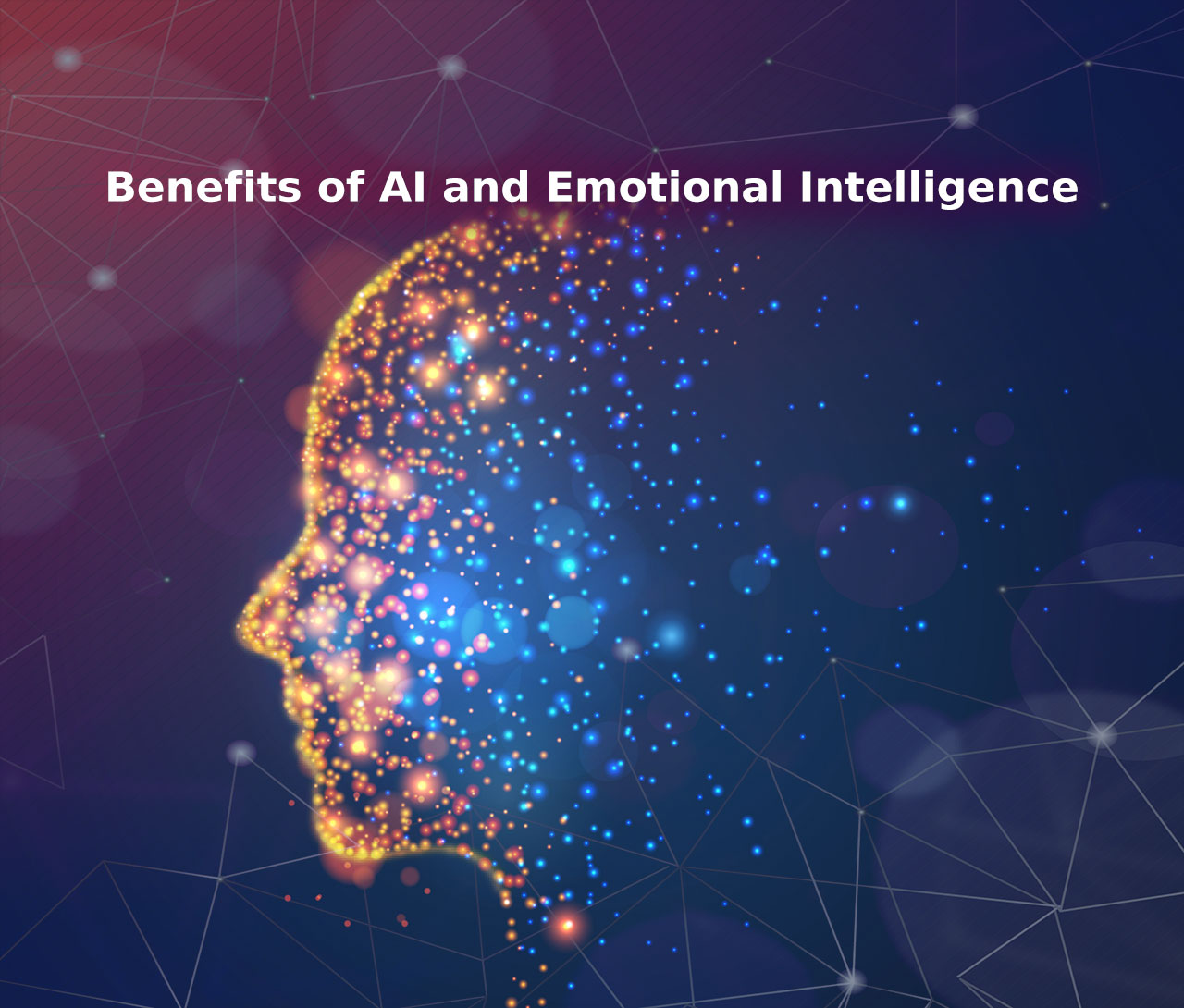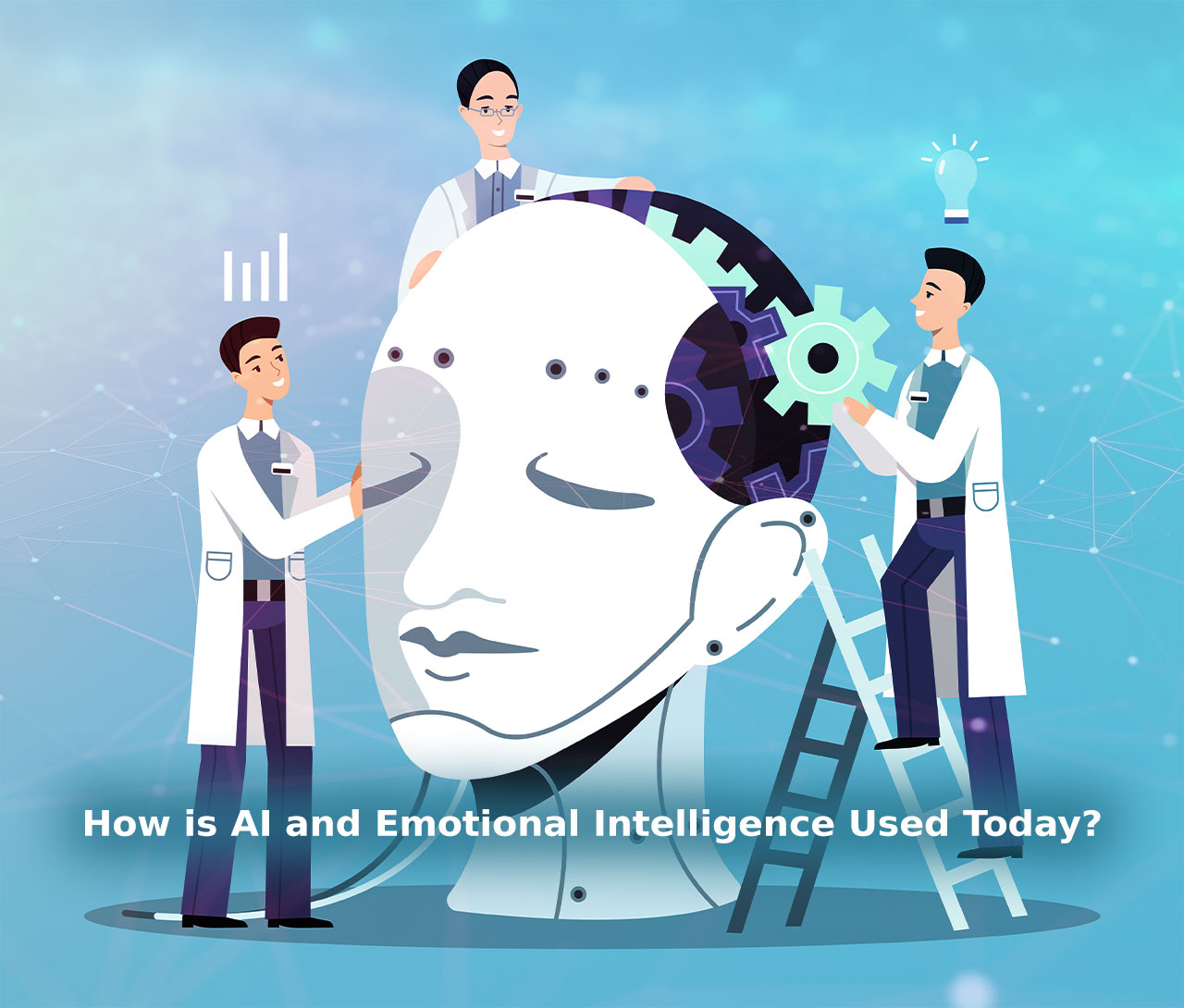In an era of rapid technological progress, artificial intelligence (AI) is undeniably reshaping our daily experiences, from virtual assistants to autonomous vehicles. Amidst this transformative landscape, the significance of emotional intelligence (EI) often takes a back seat. While AI continues to capture our fascination, understanding the nuanced realm of emotional intelligence and its intersection with AI becomes imperative. What lies at the intersection of AI and emotional intelligence? Let’s delve into the intriguing interplay between these two facets of intelligence.
What is AI and Emotional Intelligence?
Emotional Intelligence in AI, also known as Emotion AI or Affective Computing, refers to the capacity of AI systems to recognize and react to human emotions. It involves utilizing artificial intelligence to analyze and interpret human emotions based on cues like facial expressions, body language, and other indicators. This technology enables AI systems to comprehend and respond to human emotions effectively. This capability will enable both humans and machines to engage in a significantly more organic manner, closely resembling the dynamics of interpersonal communication.
Affective computing originated in 1995 at MIT Media Lab, where cameras, microphones, and physiological sensors were used to collect affective responses in order to recognize emotions. This research by Professor Rosalind Picard resulted in the publication of “Affective Computing.” In present times, machines have become skilled at analyzing data and can detect subtle emotional cues that may go unnoticed by some individuals.
Benefits of AI and Emotional Intelligence
- Enhancing Human-Machine Interactions for Deeper Connection: Emotional intelligence and AI technology synergize to elevate the learning experience through tailored feedback and support, adapting to students’ emotional states. Moreover, AI facilitates personalized customer service, enriching the overall customer experience.
- Advanced Educational Enhancement: AI technology is capable of developing educational games and simulations that can adjust according to the emotional states of students. Such advancements have the ability to enhance student engagement and optimize learning results.
- Shaping the Future of AI: Advancements in robotics and increased automation are expected to result from the incorporation of emotional intelligence in AI. Additionally, this integration may facilitate the creation of AI systems that possess self-awareness and the ability to make decisions influenced by emotional cues.
- Ethical Considerations: When it comes to AI and emotional intelligence, there are numerous ethical factors to consider. These include worries about privacy, the presence of bias and discrimination, as well as the need for accountability and responsibility.
Key Differences Between AI and Emotional Intelligence
Emotional intelligence is concerned with the emotions of human beings, whereas artificial intelligence focuses on the theory and advancement of computers.
Emotional intelligence entails the skill of effectively handling and reacting to human emotions in the present moment. It relies on real-time emotional information. Conversely, artificial intelligence (AI) utilizes data analysis to detect and address existing errors automatically.
AI algorithms remain constant once they are set, unless they are altered by human involvement. Conversely, emotional intelligence adjusts and evolves in response to various situations and contexts.
Artificial intelligence revolves around machines and technological advancements, while emotional intelligence prioritizes human connections and emotions.
Emotional competence in individuals can be fostered through the cultivation of emotional intelligence. However, artificial intelligence (AI) does not have the same impact on personal growth and development.
AI improves the effectiveness of tasks performed by machines, while emotional intelligence plays a crucial role in developing proficient leaders and human resources.
It is crucial to acknowledge that although your statements touch upon certain broad differences between AI and emotional intelligence, it is imperative to understand that the connection between the two can possess a higher level of complexity. Emotional intelligence has the potential to provide valuable insights into the development and utilization of AI systems, particularly in fields that encompass human interaction and the recognition of emotions.
How is AI and Emotional Intelligence Used Today?
As the industry evolves, numerous organizations are actively leveraging it to enhance their offerings and improve customer satisfaction. Here are several examples:
Affectiva, a company specializing in emotion recognition software, offers a product called Affdex for Market Research that enables advertisers and video marketers to capture real-time facial expressions of individuals while watching videos. By comparing this data to their emotion database and analyzing benchmarks for metrics like sales lift and brand recall, Affectiva provides valuable insights and optimization recommendations to its clients, including well-known brands like Kellogg’s and CBS, to enhance their content and maximize their media investments. The company is additionally aiding the automotive sector in finding innovative approaches to utilize artificial emotional intelligence for enhancing the transportation journey, encompassing aspects like road safety and passenger satisfaction. This encompasses advanced monitoring solutions to detect drivers who may be impaired or fatigued, as well as serving as a system for autonomous vehicles.
Realeyes is another company that offers AI and emotional intelligence solutions to support marketers in their market research endeavors. Utilizing webcams, computer vision, and artificial intelligence technology, Realeyes analyzes the facial expressions of viewers while they watch videos. This enables the company to provide valuable feedback on the efficacy of the creative content used in advertising campaigns, thereby assisting companies like Coca-Cola and Hershey’s in improving the effectiveness of their marketing strategies.
Microsoft possesses a specialized team that is committed to the advancement of novel technologies aimed at fostering emotional resilience and well-being. By harnessing the power of artificial emotional intelligence, this team, known as HUE (human understanding and empathy), strives to detect and react to emotional states. Their primary focus is to integrate artificial emotional intelligence into Microsoft products, with a particular emphasis on empathetic search, human comprehension within gaming, and adaptable work environments.
To Sum it Up
The evolving synergy between AI and emotional intelligence presents a fascinating trajectory for the future. As we navigate the realms of technology and human emotions, it becomes evident that integrating emotional intelligence into AI systems holds the potential to create more empathetic, responsive, and ethically aligned technologies. The journey ahead involves a thoughtful balance between harnessing the capabilities of AI and recognizing the irreplaceable essence of emotional intelligence in our ever-changing technological landscape. As we continue to explore this dynamic interplay, the quest for harmonizing artificial and emotional intelligence paves the way for a more nuanced and compassionate era of innovation.


